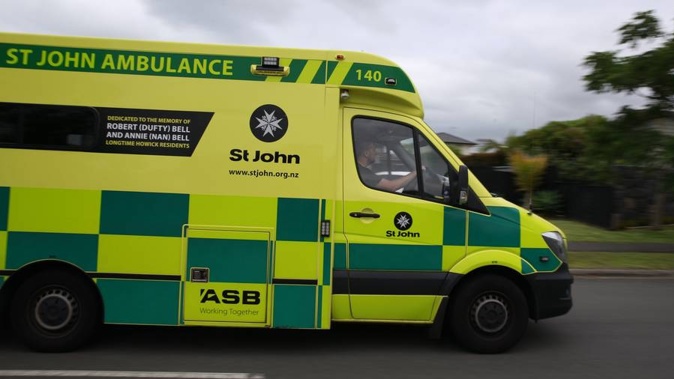
Advocates for emergency first responder staff say they aren’t getting the support they need for the gradual onset of post-traumatic stress.
Police officers, military personnel, firefighters and ambulance officers are often exposed to traumatic incidents on the job.
Massey University Associate Professor of Clinical Psychology Ian de Terte - a former police detective - said they can experience about 600 to 700 such incidents during their working career.
He said repeated exposure can increase the likelihood of developing Post Traumatic Stress Disorder (PTSD) or components of post-traumatic stress like re-experiencing, hyper-arousal or avoidance.
Police, Hato Hone St John and Fire and Emergency say they have several support options for staff facing mental distress, including access to professional services and wellness advisors.
But the New Zealand Professional Firefighters Union is seeking more mental health support, as part of its current collective bargaining.
National Secretary Watttie Watson said access to psychologists is “very patchy” and typically capped at three sessions, and claims Fire and Emergency does “bugger all” for peer support.
Police Association President Chris Cahill said a 2021 survey of its members found more than 14% had a potential clinical diagnosis, and almost 43% appeared to have significant symptoms.
“The problem with PTSD is it’s something that is cumulative. It’s built up over time and many different events can contribute to it.”
First Union National Ambulance Coordinator Faye McCann said its members were also dealing with lots of highly distressing situations that could cause PTSD.
“After you’ve seen so many horrific things, or dealt with so much trauma, then there’s always going to be a consequence of that.”
Workers groups say first responders often resort to support through ACC - especially when confronted with trauma - but this too has issues.
ACC Head of Service Operations Phil Riley said the agency accepts claims for work-related mental injuries for all industries and workplaces, but the injury “must have been caused by a single, sudden work event”.
He said ACC doesn’t cover mental injuries related to exposure to traumatic events outside of work or gradual onset workplace stress “where the mental injury has occurred over time”.
Cahill said, under the legislation, a person has to experience, see, or hear an event directly to make an ACC claim, and can’t be traumatised through a secondary source.
“If we have a dispatcher or a call taker who answers the phone during a horrific event such as the mosque shooting, for instance, they can’t be covered under ACC law because it’s seen as secondary trauma.”
de Terte said there is a case for expanding the legislation to cover secondary exposure, and there also needed to be more support generally for people in these professions.
“The earlier you intervene with people or support people, the more likely that things are going to be better for the individual.”
“It doesn’t matter if it’s one event or 10 events or 20 events -- if they’ve been working in fields exposed to traumatic events, and they want support, they should be able to get it.”
ACC Minister Scott Simpson said the ACC scheme is designed to provide cover for accident-related injuries, but cover may be available for workers who have experienced multiple trauma events in certain cases.
He said any expansion of ACC would require careful analysis of the benefits, impacts and costs, including the impact on levy-payers.
Take your Radio, Podcasts and Music with you









